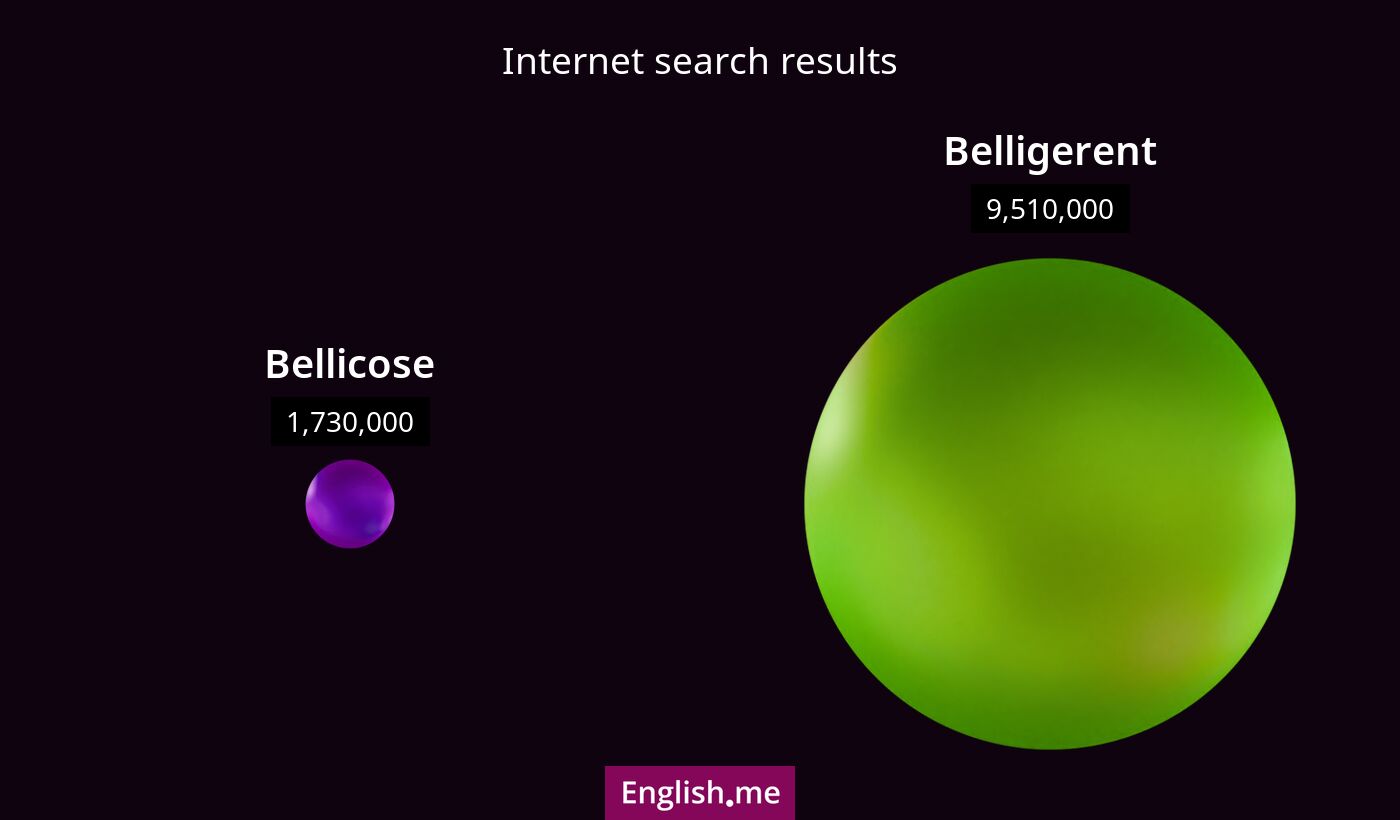Battle of words: comparing "bellicose" and "belligerent"
Reviewed and edited by  Lloyd Cooper 03/11/2024, 14:03
Lloyd Cooper 03/11/2024, 14:03
English.me team member

 What is similar?
What is similar?
Both words pertain to aggression and warlike behavior. They are often used to describe people or actions that are inclined to start conflicts or demonstrate hostility.
 What is different?
What is different?
Bellicose often refers to a natural disposition toward aggression and liking for conflict, often used more in terms of demeanor or attitude, whereas belligerent can refer to both an attitude of hostility and an entity that is engaged in warfare.
 Which one is more common?
Which one is more common?

 Examples of usage
Examples of usage
Bellicose- The bellicose stance of the country's leadership concerned neighboring nations.
- Her bellicose nature often led to arguments within the team.
- The negotiations were hindered by the bellicose rhetoric of the representatives.
- The belligerent behavior of the protestors led to a confrontation with the police.
- He became belligerent when someone disagreed with him.
- During wartime, countries in conflict are considered belligerents.

 English
English español
español française
française italiano
italiano deutsche
deutsche 日本語
日本語 polski
polski česky
česky svenska
svenska Türkçe
Türkçe Nederlands
Nederlands